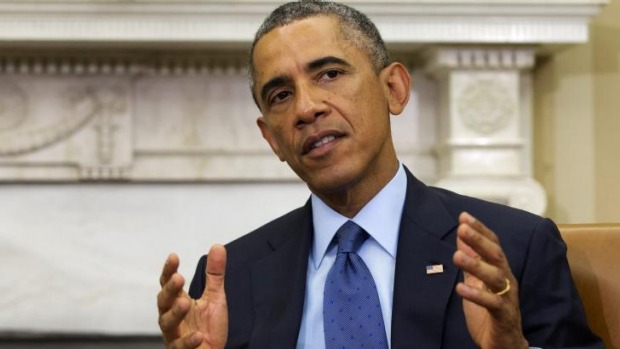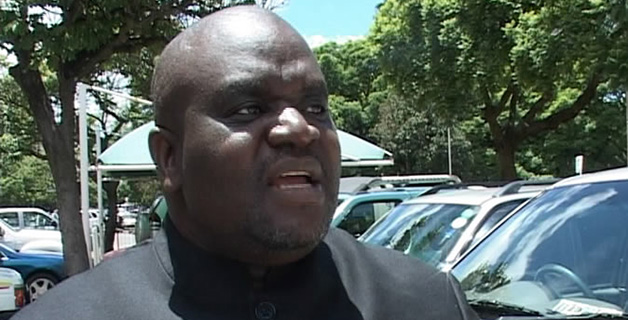US-China: Will ‘interests’ outweigh obstacles?

Jhinuk Chowdhury Correspondent
Although there were quite a few feel-good announcements, the Strategic & Economic Dialogue clearly shows mutual trust in Sino-US relation remains a massive work to be done
As the tension between Beijing and Washington over the South China Sea intensified, a number of alternative voices emerged advocating a rethinking of the Sino-US relationship.
From the policy of what many thought was focused on ‘containment’ of China, there are now suggestions that ask Washington to ‘accommodate’ the emerging Asian power by responding to its need to be treated as an equal partner on the international stage.
Some call it ‘utterly ironic’ that two of world’s largest economies should build separate economic blocs – one leading the Asian Infrastructure Investment Bank the other the Trans-Pacific Partnership.
Others say Obama administration’s opposition to the AIIB is not what the position of a responsible stakeholder should be.
Attendees at the recently concluded seventh US-China Strategic and Economic Dialogue, including state secretary John Kerry, vice President Joe Biden, secretary of Treasury Jack Lew, Chinese vice premier Liu Yandong, Chinese vice premier Wang Yang and Chinese state councillor Yang Jiechi seem to have paid close attention to this advice.
Both sides reiterated the growing importance and ‘responsibility’ of China on the global stage and how the two largest economies should collaborate to resolve many of world’s problems.
During his closing remarks, Kerry said: “The US welcomes the emergence of a stable, peaceful, prosperous China . . . there are very few global challenges that we could not better address through closer US-China collaboration.”
Councillor Yang reciprocated by commenting that China is ready to cooperate and collaborate with the US wherever required in the Asia Pacific region and beyond.
“China is a participant, builder, and contributor to the current international system. We hope that China and the US will work together to uphold the victorious outcome of the second world war and uphold the basic norms governing international relations.”
Significant outcomes emerged from the joint summit notably on climate change, initiatives to protect the ocean, collaboration in cyber security codes of conduct, and cooperation in combating illegal wildlife trafficking, among others.
On the business side, both agreed to share a new “negative list” in order to move forward on the stalled Bilateral Investment Treaty talks.
Although there were quite a few feel-good announcements, the Strategic & Economic Dialogue clearly shows mutual trust in Sino-US relation remains a massive work to be done.
As the tension between Beijing and Washington over the South China Sea intensified, a number of alternative voices emerged advocating a rethinking of the Sino-US relationship.
From the policy of what many thought was focused on ‘containment’ of China, there are now suggestions that ask Washington to ‘accommodate’ the emerging Asian power by responding to its need to be treated as an equal partner on the international stage.
Some call it ‘utterly ironic’ that two of world’s largest economies should build separate economic blocs – one leading the Asian Infrastructure Investment Bank the other the Trans-Pacific Partnership.
Others say Obama administration’s opposition to the AIIB is not what the position of a responsible stakeholder should be.
Attendees at the recently concluded seventh US-China Strategic and Economic Dialogue, including State Secretary John Kerry, vice President Joe Biden, secretary of Treasury Jack Lew, Chinese vice premier Liu Yandong, Chinese vice premier Wang Yang and Chinese state councillor Yang Jiechi seem to have paid close attention to this advice.
Both sides reiterated the growing importance and ‘responsibility’ of China on the global stage and how the two largest economies should collaborate to resolve many of world’s problems.
During his closing remarks, Kerry said: “The US welcomes the emergence of a stable, peaceful, prosperous China . . . there are very few global challenges that we could not better address through closer US-China collaboration.”
Councillor Yang reciprocated by commenting that China is ready to cooperate and collaborate with the US wherever required in the Asia Pacific region and beyond.
“China is a participant, builder, and contributor to the current international system. We hope that China and the US will work together to uphold the victorious outcome of the second world war and uphold the basic norms governing international relations.”
Significant outcomes emerged from the joint summit notably on climate change, initiatives to protect the ocean, collaboration in cyber security codes of conduct, and cooperation in combating illegal wildlife trafficking, among others.
On the business side, both agreed to share a new “negative list” in order to move forward on the stalled Bilateral Investment Treaty talks.
Secretary Lew also cited steps taken by China with regard to its undervalued currency against the dollar. He acknowledged that the renminbi, or RMB, has appreciated in value and said that China’s foreign exchange intervention has declined over the past year. Beijing committed to intervene in currency markets only when market conditions are disorderly.
However, beyond these feel-good words, the fault-lines continued to expose deep mistrust in the bilateral relationship. — RT.









Comments